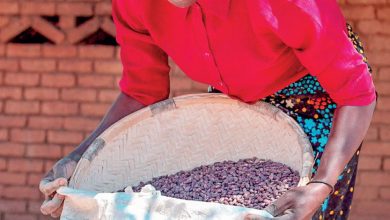MW uranium safe from trump tariffs
Lotus Resources Limited has said uranium from Malawi’s Kayelekera Mine in Karonga has been exempted from tariffs imposed by United States (US) President Donald Trump.
The decision has not come as a surprise to the National Working Group on Trade and Policy, which says uranium is a precious product which the US urgently requires; hence, the decision to exempt it.

In a report dated on April 23 2025, which details progress ahead of production restart, Lotus Resources Limited managing director Greg Bittar said terms for the sale of uranium have remained steady at approximately $80 (about K139 813) per pound.
He said Dar es Salaam in Tanzania, and Walvis Bay in Namibia have been identified as export logistics paths.
Said Bittar: “While global markets have experienced significant volatility, uranium prices have been steady in the early weeks of the US imposition of tariffs and Lotus has been able to lock in additional offtake arrangements to take advantage of solid uranium term prices in the market.
“Utilities continue to engage in negotiations for both near-term and long-term offtake, showing enthusiasm for supporting new uranium supply.”
Bitter added that refurbishment of the plant is progressing in line with the accelerated restart programme plan scheduled for the third-quarter of 2025, as more than 80 percent mechanical and electrical completion is achieved and a quarter to go until first production.
Commenting on the development, National Working Group on Trade and Policy chairperson Frederick Changaya said for a country that is struggling in terms of trade, the exemption is a good relief.
He said: “I know they want uranium, that’s why they have exempted it. So, those in policy-making should go and liaise with them, that Malawi knows that the USA wants uranium, but can they also exempt other products?
“They can write a staller of one fast-moving product, in this case uranium, and package it with other relatively slower products in terms of sales. So, we may say, buy uranium, but also get cotton wool, under African Growth and Opportunity Act [Agoa].”
Changaya further said with the Malawi Mining Investment Company established, the country must grow interest in the sector by ensuring all investors partner meaningfully with the company.
“We need 40 to 50 percent shares, not just 15 percent as is the case. It is work in progress, and we appeal to policy-makers to negotiate good deals for generations to come,” Changaya advised.
In February this year, Minister of Finance and Economic Affairs Simplex Chithyola-Banda said the government is implementing transparent licensing processes, establishing legal frameworks that enforce fair partnerships, and strengthening institutional capacity through the Malawi Mining Authority.
Mining is identified in Malawi’s long-term development blueprint—Malawi 2063, as one of the key strategic sectors with potential to support industrialisation.
In the first 10 years of implementation of the MW2063, Malawi aims to harness the mining sector through value-addition and increase export of finished products.





